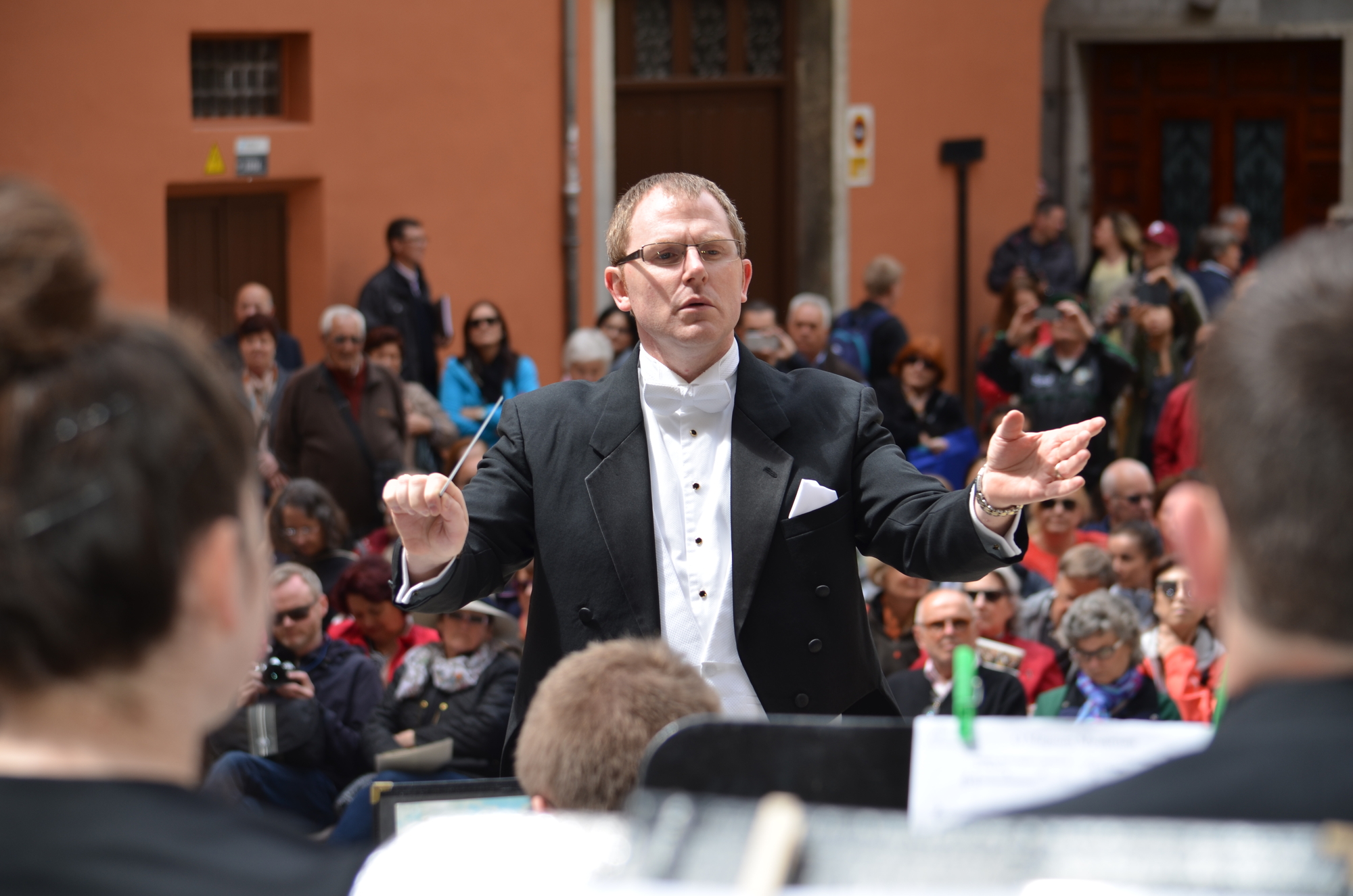
There’s a lot more to conducting a musical group than waving a baton around — and now, students hoping to learn the art can earn a certificate in instrumental conducting at ×ö°®ÊÓƵ.
“It’s how you study scores, it’s how you work with people to get the best from the musicians in front of you,” said Dr. Peter Haberman, director of bands and professor of instrumental music education. “They are not your property … it’s for you to get them to get inside the music like you are and to bring it to life.”

The program is unique in the United States, allowing any music major — not just those studying music education — to formally pursue conducting for a certificate in either orchestral conducting or band conducting.
“We’re placing a big focus on positive leadership, which ties directly into the college’s mission of engaged citizenship,” said Dr. Kevin Sütterlin, director of orchestral activities and associate professor of instrumental conducting.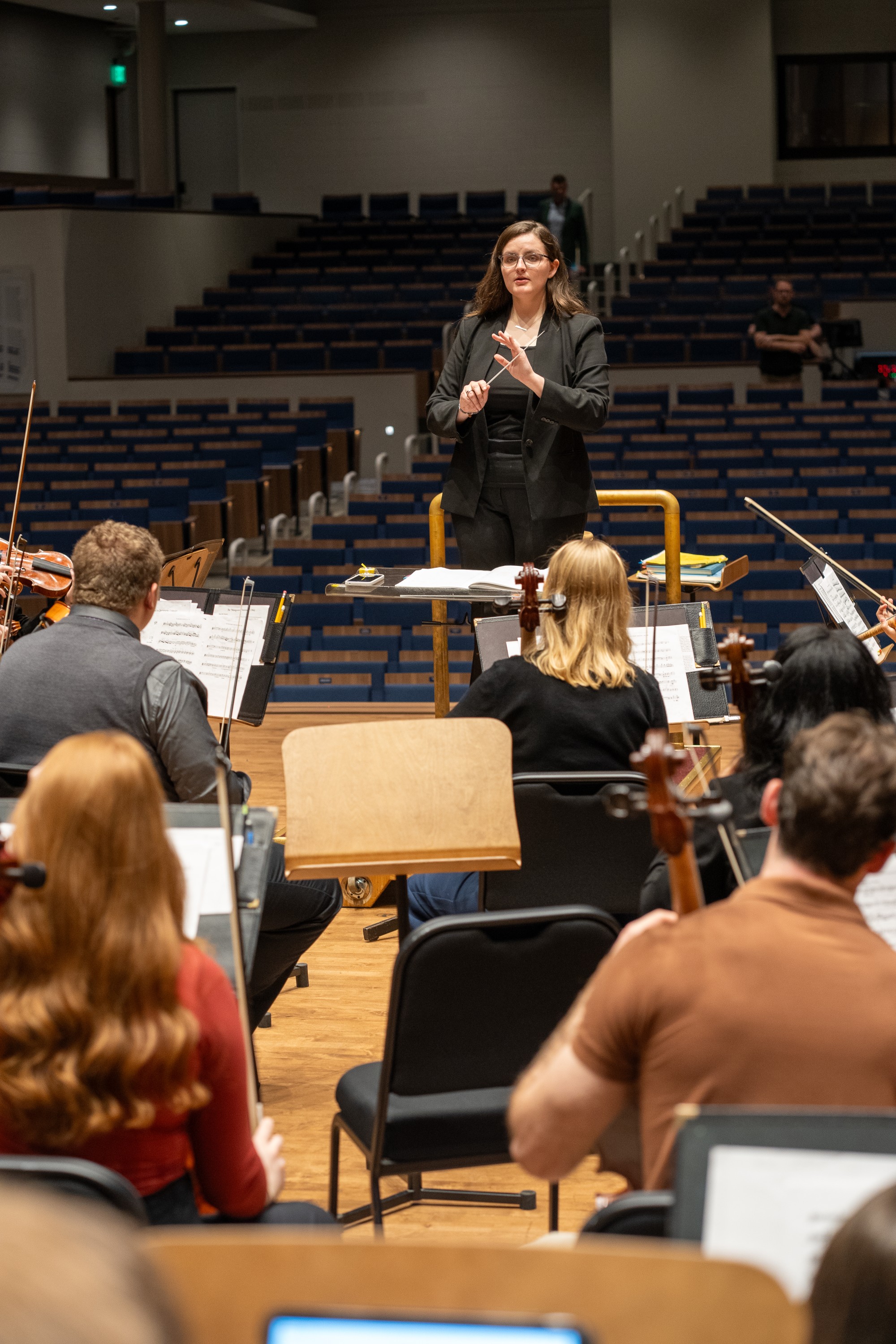
Sütterlin, who also conducts The Concordia Orchestra, will teach the orchestral conducting students, while Haberman will teach those studying band conducting. In both cases, students will learn about the physical aspects of conducting, such as body awareness and communicating through movement, and the research elements, including finding information about composers, as well as historical instruments, notations, styles, and conventions.
Audiences generally don’t see how much time conductors spend on the latter behind the scenes.
“It would appear you’d have to be an extrovert to be in this (conductor) job. You’re having to lead a group, and then you’re the face of an organization — of a professional orchestra,” Sütterlin said. “And there’s some truth to that, yes, you have to be able to ‘put it on.’ But actually, the job works really well for an introvert like me, because 95% of my time I spend by myself, at a desk, studying.”
That could mean reading a treatise by Mozart, finding out how violins were played in the Baroque period, or determining what a composer’s creation process and original intent were. Then a conductor can synthesize all that knowledge to make informed decisions about how to interpret the piece and draw the ensemble along with them to create music.
“It’s the best feeling in the world. It’s something really, really incredible. When you lift your arms and drop the arms and the sound comes at you, it’s something indescribable, really,” Sütterlin said. “It’s a power, too, that you have when you are able to shape sounds. That’s amazing, too.”
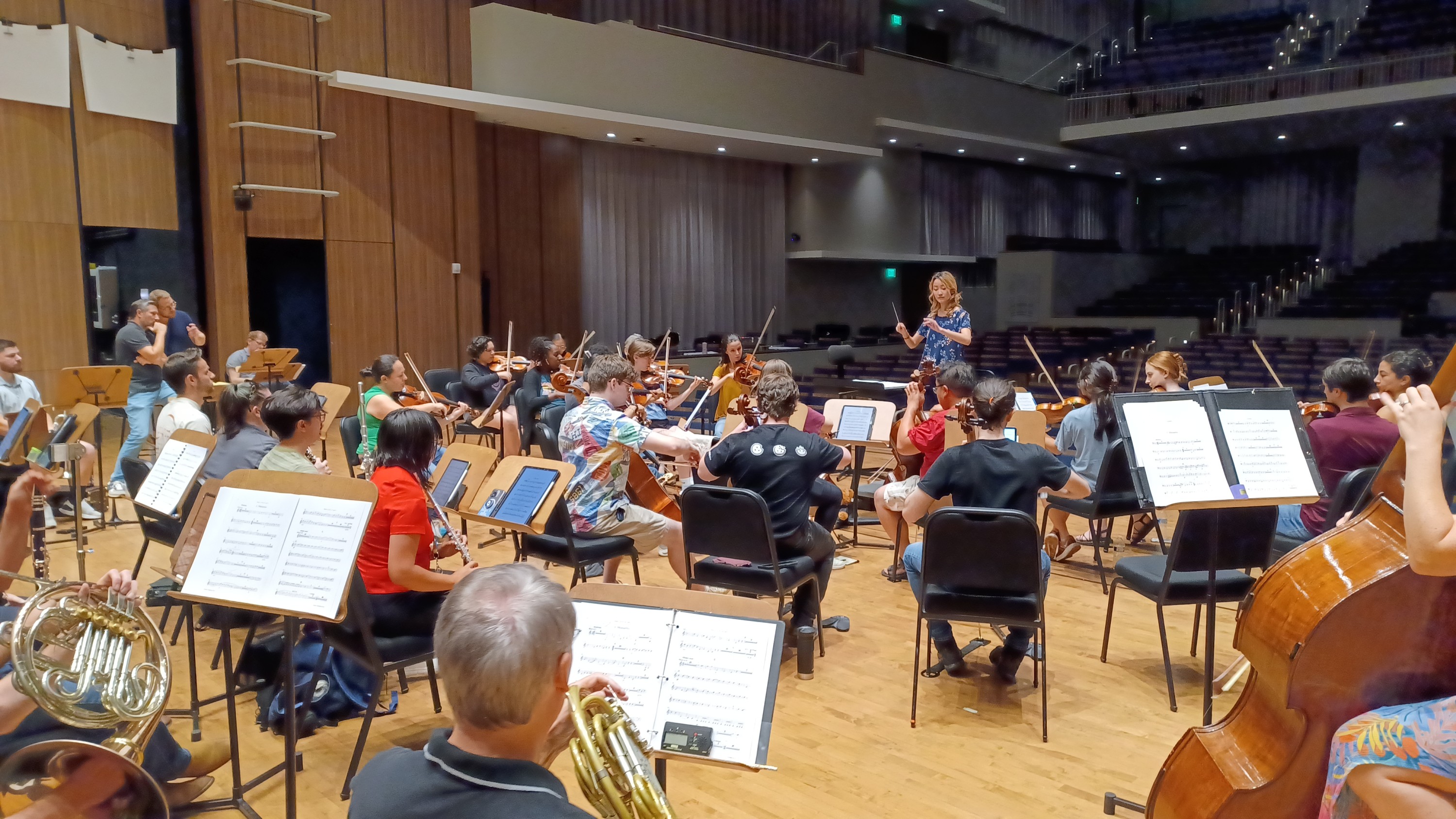
Both the orchestral and band conducting certificates are rigorous, and admission is highly competitive. Because the worlds and career pathways for band and orchestra are different, the course of study will also be geared toward conducting bands or orchestral ensembles specifically.
In the band world, academic or military bands tend to feature the highest levels of performance, whereas there are many professional orchestras all over the world with a high level of competition for positions. As such, people who seek to be professional orchestral conductors tend to stay on that career pathway, sometimes serving as assistant conductors and associate conductors before becoming an orchestra’s primary conductor, Sütterlin explained.
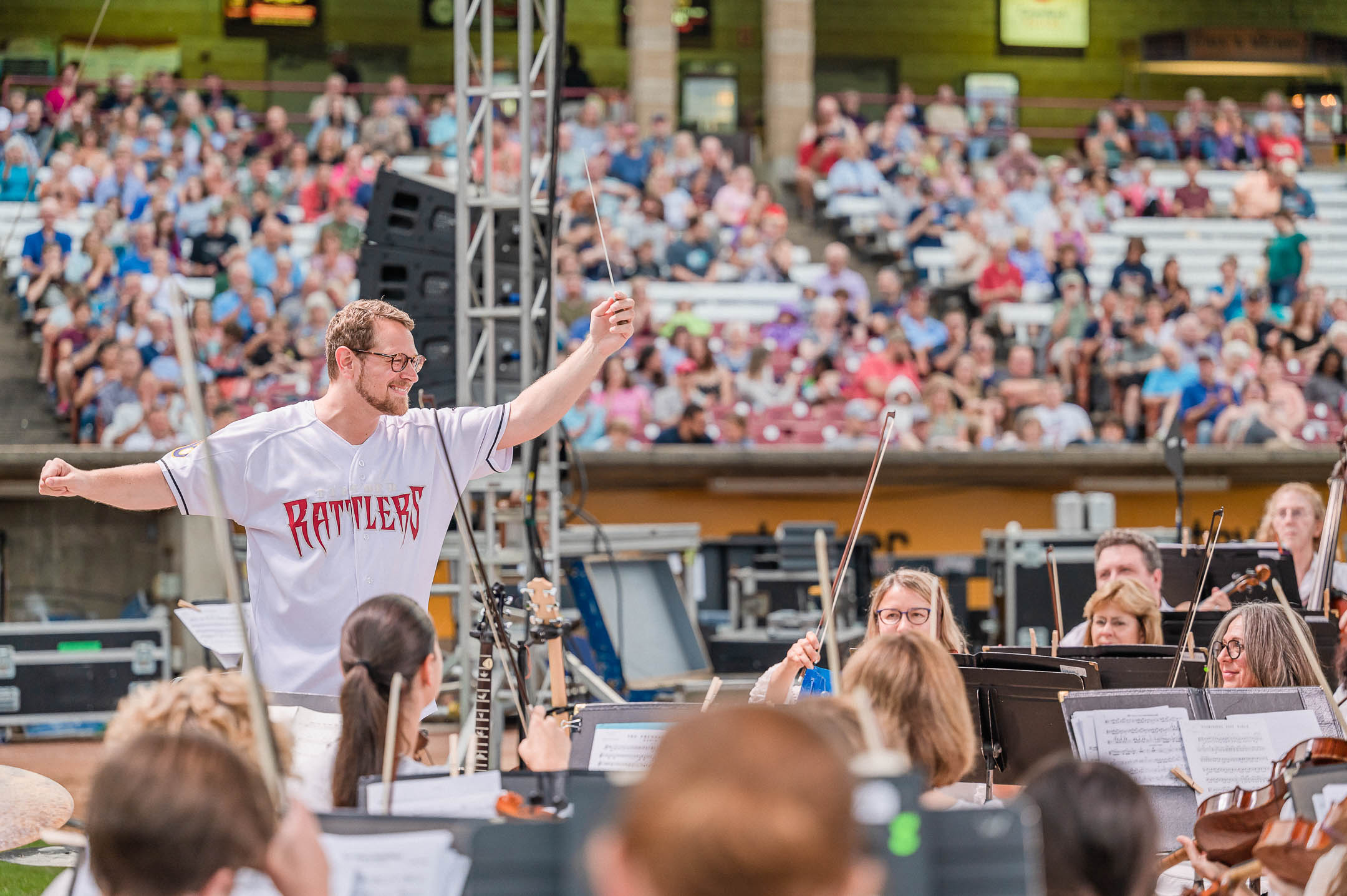
By contrast, band conductors are much more likely to combine that work with serving as a professional musician, teaching lessons, or directing a school’s band.
“Just because you’re a professional trumpet player doesn’t mean that leading an ensemble won’t be part of your future career,” Haberman said, pointing out that he serves in multiple roles and that many band performance majors plan to teach at the collegiate level.
Being able to conduct gives performers new insights into their own work and their ensembles, too.
“It’s kind of like being behind the curtain in ‘The Wizard of Oz,’” Haberman said. “You see more things. You’re ready for rehearsal in a different way … studying conducting helps you understand what is happening from the podium better, but then also helps you be a deeper musician because we study scores differently as a conductor than as a player.”
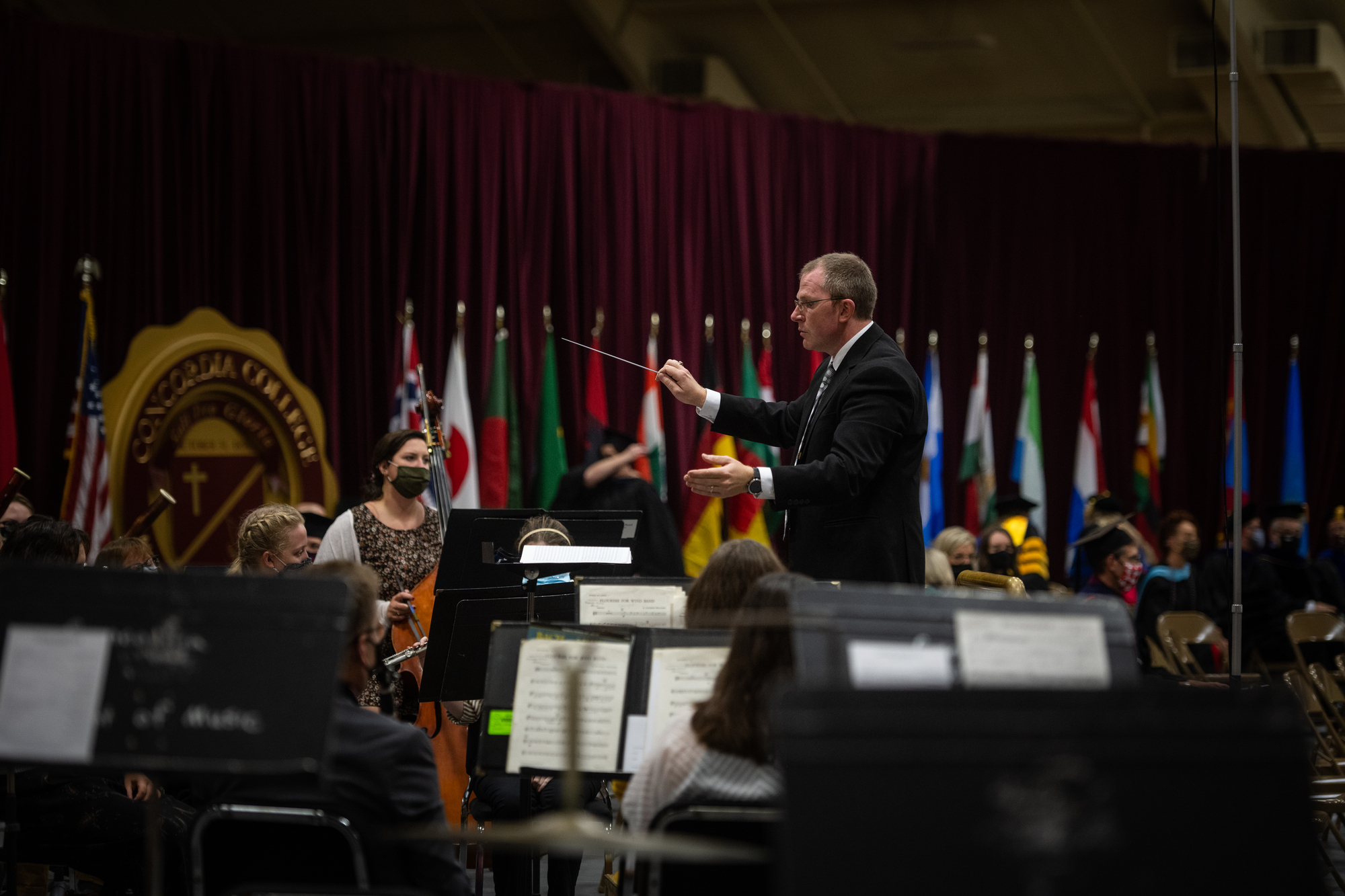
Concordia is one of only a few schools in the U.S. to offer a conducting certificate or emphasis at the undergraduate level, positioning students well to continue their studies with a master’s degree or doctorate in conducting, Haberman said.
It can be a difficult career path, but it is also a rewarding one.
“If you can’t imagine doing anything else, if you have that dream … if that bug catches you?” Sütterlin said of conducting. “It really is the best feeling in the world.”